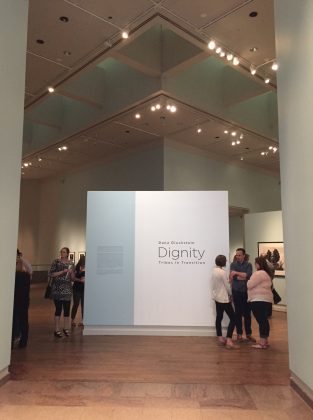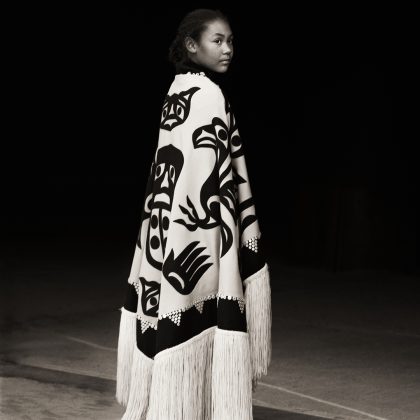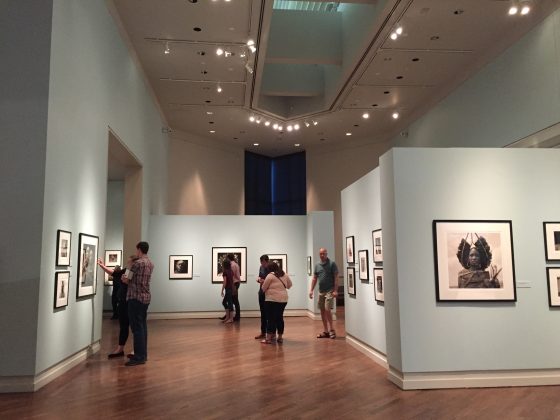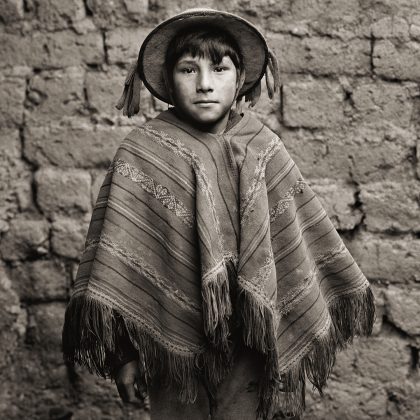
Dana Gluckstein has photographed celebrities, world leaders and professional athletes. She’s traveled the world and has spoken to the United Nations, but some of her most important work is simply photographs of everyday people.
Gluckstein briefly answered questions from the audience at an opening event for her photography exhibition, titled “Dignity,” Friday, May 18, Brigham Young University’s Museum of Art.
Gluckstein, a Los Angeles native, said she fell in love with photography while studying psychology at Stanford. She ultimately moved to San Francisco to pursue her dream and began working on advertising campaigns. Her first job was photographing factories all over the world for companies.
Gluckstein mentioned her love for portrait sessions and emphasized the difference between a live session and a still-life shoot. She said every time she takes a break in between photographs, the mood and energy in the shoot shifts and changes.
Gluckstein began working on “Dignity” in 1983 after she completed an assignment in Puerto Rico. Following her scheduled work, Gluckstein traveled to Haiti, where she was inspired by the people there and the conditions they lived in.
“The people represented to me a symbol of what I was missing in my Los Angeles life,” she said.
Gluckstein said the rampant use of technology has oversaturated Western society and has convinced people the earth and its vital natural resources will last forever.
She believes this is a myth. “When we over technologize, we forget what it means to respect the earth.”
Gluckstein said indigenous peoples are better positioned to understand conservation and respect for nature since many live in a natural environment. She said all people deserve a clean, sustainable world, and she advocated for long-term decision-making regarding long-term conservation efforts.
“It’s our human right to live with clean air, to have land and foods that aren’t polluted,” Gluckstein said.
Gluckstein also expressed her appreciation for the BYU and Mormon communities worldwide for the way both groups treat refugees and indigenous peoples. She also said she felt worried for the United States as a whole because of violence and tension.
“We’re in a place where communities are torn apart, and we see levels of violence and sexual assault and racism that I never needed to think about when I began touring,” Gluckstein said.
Gluckstein encouraged her audience at the museum to help soothe tension and derision by starting in their communities. “We don’t need to travel somewhere to help. It’s happening right here in our own backyard.”
Gluckstein said people shouldn’t give up even though despair and hardship are becoming an increasingly large part of domestic life. She discussed former South African president Nelson Mandela, who was incarcerated from 1964 to 1990, and civil rights leader Martin Luther King Jr. as two individuals who never gave in to adversity.
“The journey is a long one, and we must not give up. Our humanity is based on not giving up,” Gluckstein said.
Following tragedies like the Stoneman Davis High School shooting in February, Gluckstein said she hopes to see Americans vote in favor of positive change. She noted the current debate on gun rights and legislation and encouraged bridging the gap in the argument.
“We can have the right to own guns and the right to safety. Our children should be able to go to school without fear,” Gluckstein said. “We have the right to live, feel safe and abide by our laws.”
“Dignity” will remain on display at the MOA through September 29. For more information, visit the MOA’s website.












